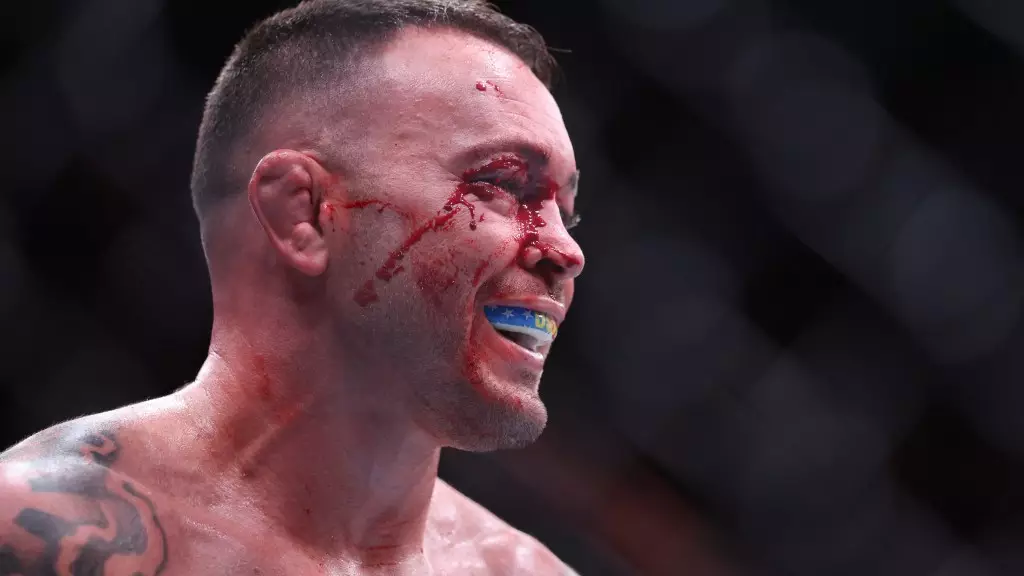Colby Covington, the former interim welterweight champion, finds himself in a challenging position in the UFC landscape after experiencing consecutive losses that have cast doubt on his title aspirations. Most recently, Covington suffered a doctor stoppage TKO loss to Joaquin Buckley at UFC on ESPN 63, marking his second defeat in a row and placing him in an elusive state within the welterweight division. With a record of 17-5 in mixed martial arts and 12-5 in the UFC, Covington not only faces pressure from the results but also the stigma of being 0-3 in undisputed title bouts. Despite these difficulties, Covington remains undeterred and optimistic about his future in the sport.
Covington’s mindset reflects a deep-seated belief in resilience and longevity in the sport. He draws parallels with Daniel Cormier, who captured the championship at an older age than most fighters. Covington believes that age is just a number, drawing confidence from Cormier’s ascent to glory at 41 years old. Covington, at 36, asserts that he still has many fighting years left ahead of him. This positive mindset is crucial for athletes facing adversity, as it allows them to envision a clear path back to the top, despite the setbacks they may encounter along the way.
When it comes to potential future opponents, Covington’s attention is particularly focused on the current UFC welterweight champion, Belal Muhammad. With a record of 24-3 and significant accolades to his name, Muhammad has been a prominent figure in the welterweight division. Covington, however, is not intimidated. He boldly claims an advantage over Muhammad, emphasizing his superior wrestling skills and the belief that the champion will be unable to take him down or outclass him in grappling exchanges. His confidence radiates through his statements, suggesting that he sees this potential matchup as an opportunity for redemption rather than a hindrance.
Covington also seems to feel underestimated in the current narrative around the welterweight division. In his words, “No one knows who [Muhammad] is,” which highlights his perception of his own marketability and reputation compared to other fighters. Covington’s desire to make a statement by defeating Muhammad is fueled by a need to reassert himself as a top contender in the eyes of fans and critics. He expresses an unwavering commitment to amplify his brand and skill set, proclaiming that he will leave an indelible mark in the octagon, especially during moments where he believes he will shine.
While setbacks may be a part of Covington’s recent journey, his outlook showcases the tenacity required to remain relevant in a highly competitive sport. By channeling inspiration, analyzing matchups critically, and calling for the recognition he feels he deserves, Covington positions himself as a fighter determined to defy the odds. As he prepares for the next phase of his career, fans will undoubtedly be watching closely to see if he can indeed achieve the “unthinkable” and regain his status in the welterweight division.

